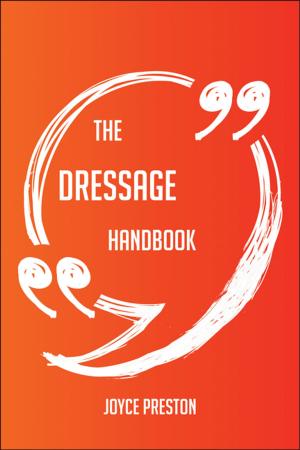Principles Of Political Economy - The Original Classic Edition
Nonfiction, Reference & Language, Reference, Fiction & Literature| Author: | Mill John | ISBN: | 9781486415434 |
| Publisher: | Emereo Publishing | Publication: | October 24, 2012 |
| Imprint: | Emereo Publishing | Language: | English |
| Author: | Mill John |
| ISBN: | 9781486415434 |
| Publisher: | Emereo Publishing |
| Publication: | October 24, 2012 |
| Imprint: | Emereo Publishing |
| Language: | English |
Another notable-quotable passage concerns socialism: If, therefore, the choice were to be made between Communism with all its chances, and the present [1852] state of society with all its sufferings and injustices; if the institution of private property necessarily carried with it as a consequence, that the produce of labour should be apportioned as we now see it, almost in an inverse ratio to the labour--the largest portions to those who have never worked at all, the next largest to those whose work is almost nominal, and so in a descending scale, the remuneration dwindling as the work grows harder and more disagreeable, until the most fatiguing and exhausting bodily labour cannot count with certainty on being able to earn even the necessaries of life; if this or Communism were the alternative, all the difficulties, great or small, of Communism would be but as dust in the balance. Looks like JSM is on the wrong side of history again, but he also noted: But to make the comparison applicable, we must compare Communism at its best, with the régime of individual property, not as it is, but as it might be made. Fair enough. There are many other notable-quotable sections of Mills book.
Mills book is about the earliest work on comparative economic systems that I know of. The inclusion of Mills chapters on socialism add much to this edition. Given that he was writing in the shadow of Malthus, he does take a rather pessimistic tone at times. Yet his discussion of the stationary state are interesting. On page 129 Mill discusses how the stationary state does not impose insurmountable obstacles to human improvement. It is also interesting to note the degree to which his arguments for limited government involvement in the economy fits with modern economic theory.
Mill was one of the greatest social theorists of all times. Yet he (and Marx) failed to see the importance of marginal concepts in economics. Mill was, however, a much better social theorist than Marx. Mill was able to arrive at some sound conclusions without modern price theory. This book also reveals Mills abilities as a social philosopher. This is a rare example of a book that it vitally important despite being fundamentally wrong. It is important not merely for historical reasons. PPE makes you think more deeply about economics, politics, and philosophy. Few thinkers have been as thought provoking as Mill, and likely few will match his level of acumen in the future.
Another notable-quotable passage concerns socialism: If, therefore, the choice were to be made between Communism with all its chances, and the present [1852] state of society with all its sufferings and injustices; if the institution of private property necessarily carried with it as a consequence, that the produce of labour should be apportioned as we now see it, almost in an inverse ratio to the labour--the largest portions to those who have never worked at all, the next largest to those whose work is almost nominal, and so in a descending scale, the remuneration dwindling as the work grows harder and more disagreeable, until the most fatiguing and exhausting bodily labour cannot count with certainty on being able to earn even the necessaries of life; if this or Communism were the alternative, all the difficulties, great or small, of Communism would be but as dust in the balance. Looks like JSM is on the wrong side of history again, but he also noted: But to make the comparison applicable, we must compare Communism at its best, with the régime of individual property, not as it is, but as it might be made. Fair enough. There are many other notable-quotable sections of Mills book.
Mills book is about the earliest work on comparative economic systems that I know of. The inclusion of Mills chapters on socialism add much to this edition. Given that he was writing in the shadow of Malthus, he does take a rather pessimistic tone at times. Yet his discussion of the stationary state are interesting. On page 129 Mill discusses how the stationary state does not impose insurmountable obstacles to human improvement. It is also interesting to note the degree to which his arguments for limited government involvement in the economy fits with modern economic theory.
Mill was one of the greatest social theorists of all times. Yet he (and Marx) failed to see the importance of marginal concepts in economics. Mill was, however, a much better social theorist than Marx. Mill was able to arrive at some sound conclusions without modern price theory. This book also reveals Mills abilities as a social philosopher. This is a rare example of a book that it vitally important despite being fundamentally wrong. It is important not merely for historical reasons. PPE makes you think more deeply about economics, politics, and philosophy. Few thinkers have been as thought provoking as Mill, and likely few will match his level of acumen in the future.















